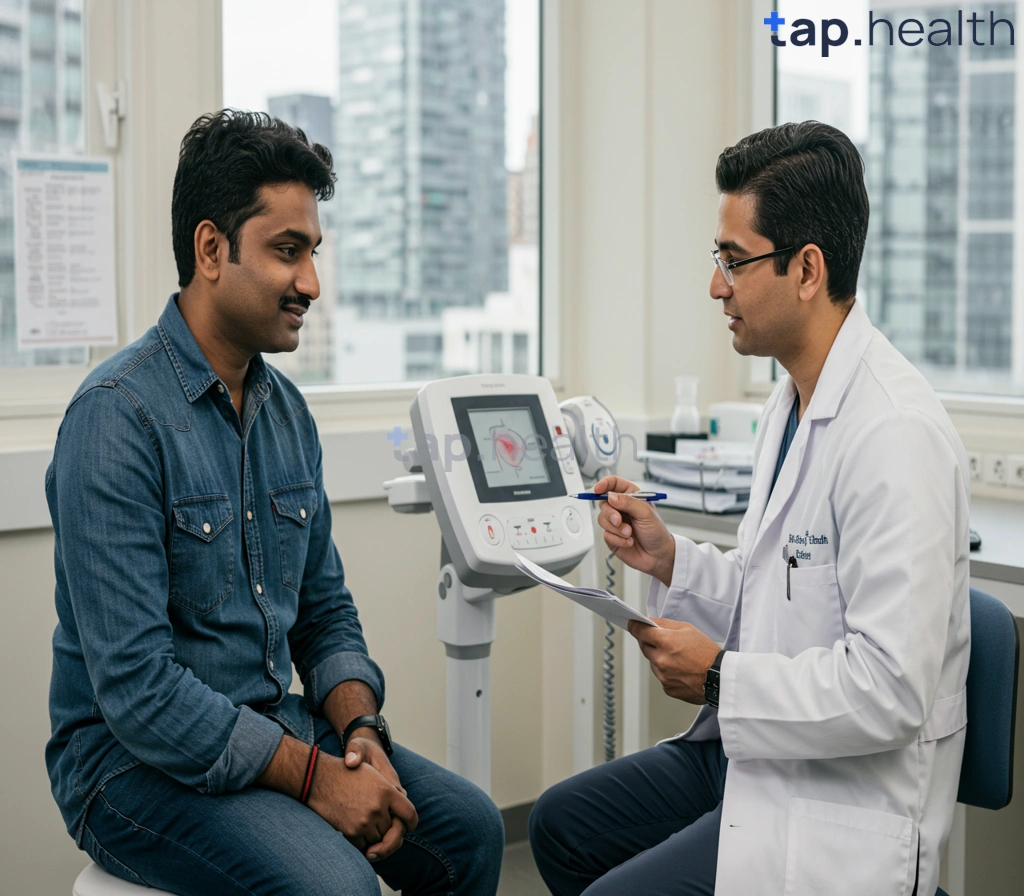Table of Contents
- Microbiome Diet: A Diabetes Management Guide
- How Gut Health Impacts Blood Sugar Control
- Optimize Your Microbiome for Better Diabetes Outcomes
- The Best Foods for a Diabetes-Friendly Gut
- Understanding the Link Between Gut Bacteria and Diabetes
- Frequently Asked Questions
- References
Tired of feeling like your diabetes is controlling you? What if I told you a simple shift in your diet could dramatically impact your blood sugar levels and overall well-being? We’re talking about harnessing your gut – the incredible power of your microbiome – and how it directly relates to effective diabetes management. This blog post will explore the fascinating world of the microbiome diet and how strategically nourishing your gut bacteria can help you take control of your diabetes. Let’s discover how simple dietary changes can make a significant difference in your health journey.
Microbiome Diet: A Diabetes Management Guide
Understanding the Gut-Diabetes Connection
Diabetes, particularly type 2, affects a significant global population, with over 75% of those living with the condition residing in low- and middle-income countries, as highlighted by the International Diabetes Federation. In India and tropical countries, dietary habits and lifestyle factors often play a crucial role in diabetes development. Managing blood sugar effectively involves understanding the intricate relationship between your gut microbiome and your overall health. A balanced microbiome, rich in beneficial bacteria, can significantly improve insulin sensitivity and glucose regulation.
Dietary Strategies for a Healthier Microbiome
A microbiome-focused diet emphasizes whole, unprocessed foods. Incorporating a variety of fruits, vegetables, and legumes rich in fiber is crucial. Fiber acts as prebiotics, feeding the beneficial bacteria in your gut. Traditional Indian and tropical diets, often rich in these elements, can provide a solid foundation. However, limiting processed foods, sugary drinks, and refined carbohydrates is essential. Consider including fermented foods like yogurt (with live cultures) and kimchi, known for promoting gut health. Small, frequent meals can also help manage blood sugar levels more effectively. For more specific guidance on incorporating prebiotics and probiotics, check out our blog on Enhance Gut Health and Manage Diabetes with Prebiotics and Probiotics.
Practical Tips for Indian & Tropical Climates
In hotter climates, staying hydrated is paramount. Prioritize water consumption, and consider incorporating hydrating fruits like watermelon and coconut water. Spices like turmeric and ginger, commonly used in Indian and tropical cuisines, possess anti-inflammatory properties which can support overall health. Remember to consult a healthcare professional or registered dietitian for personalized dietary advice, considering individual health needs and local food availability. A tailored approach, based on your specific circumstances and cultural preferences, will yield the best results in managing your diabetes through a microbiome-friendly diet. For a helpful dietary guide, see our Diet Chart for Diabetic Patients to Control Diabetes.
How Gut Health Impacts Blood Sugar Control
Maintaining healthy blood sugar levels is crucial, especially in managing diabetes. Recent research highlights the significant impact of diet on this: daily consumption of sugary beverages raises diabetes risk by 26%. But beyond simply reducing sugary drinks, understanding the role of your gut microbiome is key to effective diabetes management, particularly in regions like India and other tropical countries where dietary habits and prevalent conditions often intersect.
The Microbiome’s Role in Blood Sugar Regulation
Your gut microbiome, the community of bacteria and microorganisms living in your digestive tract, plays a surprisingly significant role in blood sugar control. A balanced and diverse microbiome helps regulate the absorption of glucose from your food, preventing sharp spikes and crashes in blood sugar levels. Conversely, an imbalanced microbiome, often caused by poor dietary habits common in many tropical climates (like high intakes of refined carbohydrates and processed foods), can lead to increased inflammation and insulin resistance. Understanding this connection is crucial, and learning more about What’s the Connection Between Gut Health and Your Diet? can be very insightful.
Actionable Steps for Improved Gut Health
Incorporating gut-friendly practices into your daily routine can significantly improve your diabetes management. Focusing on a diet rich in fiber-rich fruits, vegetables, and whole grains prevalent in the region, like lentils, rice, and various tropical fruits, is crucial. Furthermore, reducing processed foods, sugary drinks, and unhealthy fats is vital. Probiotic-rich foods like yogurt (particularly those containing locally sourced strains) and fermented vegetables can also support a healthy microbiome. Remember, a balanced microbiome contributes to better glucose regulation, making it a cornerstone of effective diabetes management. It’s also important to note that the impact extends beyond just blood sugar; improving your gut health can positively affect other areas of your well-being, as explained in our blog on How Your Gut Health Affects Mental Wellbeing.
Prioritize Gut Health for Better Diabetes Management
For individuals in India and tropical countries, understanding the connection between gut health and diabetes management is especially relevant. By focusing on a diet that supports a thriving microbiome, you can take proactive steps to improve your blood sugar control and overall well-being. Consult with a healthcare professional or registered dietitian for personalized advice tailored to your specific needs and dietary habits.
Optimize Your Microbiome for Better Diabetes Outcomes
Diabetes affects a significant portion of the global population, with a substantial number falling within the 20-64 age bracket (61%, source). In India and other tropical countries, where diabetes prevalence is high, understanding and managing this condition is crucial. A key, often overlooked, factor in diabetes management is the gut microbiome. Your gut health significantly impacts blood sugar control and overall well-being.
Understanding the Microbiome’s Role
The microbiome, the trillions of microorganisms residing in your gut, plays a vital role in various bodily functions, including glucose metabolism. An imbalanced microbiome, often characterized by an overgrowth of harmful bacteria, can contribute to insulin resistance and inflammation, worsening diabetes symptoms. Conversely, a diverse and healthy microbiome, rich in beneficial bacteria, can improve insulin sensitivity and reduce inflammation. This is particularly important in tropical climates where dietary habits and lifestyle factors can influence gut health.
Practical Steps for Microbiome Optimization
Simple dietary changes can significantly impact your gut microbiome and diabetes management. Prioritize a diet rich in fiber-rich foods like fruits, vegetables, and whole grains, common and readily available in many Indian and tropical regions. Fermented foods such as yogurt and kimchi, which are increasingly popular globally, can also introduce beneficial bacteria. Reduce processed foods, sugary drinks, and unhealthy fats—known contributors to microbiome imbalance. Consider incorporating spices like turmeric and ginger, commonly used in Indian cuisine, known for their anti-inflammatory properties. For more in-depth strategies, check out our guide on 10 Proven Tips for Effective Diabetes Management.
Region-Specific Considerations
In many Indian and tropical countries, access to a diverse range of fruits and vegetables is readily available, offering an excellent opportunity to support a healthy gut microbiome. However, be mindful of food safety and hygiene practices to prevent infections that could disrupt gut balance. Consult with your doctor or a registered dietitian to create a personalized dietary plan that considers your specific needs and local food options. Taking charge of your gut health is a powerful step towards better diabetes management. Maintaining a healthy gut is also crucial for a strong immune system; learn more about Boosting Immunity While Managing Diabetes.
The Best Foods for a Diabetes-Friendly Gut
Nourishing Your Microbiome in Tropical Climates
Maintaining a healthy gut microbiome is crucial for effective diabetes management, especially in hot and humid climates prevalent across India and other tropical regions. A balanced diet rich in fiber and prebiotics is key. Remember, managing diabetes often involves careful carbohydrate intake; a common guideline suggests around 45–60 grams of carbs per meal, but this varies depending on individual needs. Prioritizing low-glycemic index foods helps prevent blood sugar spikes.
Fruits, Vegetables, and Spices: Your Gut’s Best Friends
Incorporating locally sourced fruits abundant in these regions, such as mangoes (in moderation), papaya, and bananas (ripe, in controlled portions), provides essential vitamins and fiber. Leafy greens like spinach and moringa, along with legumes like lentils and chickpeas, are excellent sources of prebiotic fiber which feeds beneficial gut bacteria. Don’t forget the power of spices! Turmeric, ginger, and cinnamon, staples in Indian and tropical cuisine, possess anti-inflammatory properties that can positively influence gut health and potentially aid in diabetes management. For more ideas on diabetes-friendly foods, check out 20 Best Foods for People with Diabetes – Tap Health.
Prioritizing Whole Grains and Fermented Foods
Opt for whole grains like brown rice and millets over refined carbohydrates. These provide sustained energy release, preventing rapid blood sugar fluctuations. Incorporate fermented foods like yogurt (with live cultures), idli, and dosa (made with fermented batter) into your diet. These foods are rich in probiotics, beneficial bacteria that support a healthy gut ecosystem. Remember to consult a doctor or registered dietitian to create a personalized diabetes management plan that considers your individual needs and cultural dietary preferences. And for tips on adapting your diet for special occasions, see our guide on Creating Diabetes-Friendly Dishes for the Holidays.
Understanding the Link Between Gut Bacteria and Diabetes
The intricate connection between our gut microbiome and overall health is increasingly understood, particularly concerning chronic diseases like diabetes. A healthy gut, teeming with diverse beneficial bacteria, plays a crucial role in regulating blood sugar levels and reducing inflammation—both key factors in managing diabetes. Conversely, an imbalanced gut microbiome, or dysbiosis, can exacerbate insulin resistance and contribute to the development of type 2 diabetes. This is especially relevant in Indian and tropical countries where dietary habits and lifestyles can significantly impact gut health.
The Microbiome Diet’s Impact on Diabetes Management
The microbiome diet focuses on nourishing beneficial gut bacteria through the consumption of prebiotics (foods that feed these bacteria) and probiotics (live bacteria). Incorporating foods rich in fiber, like lentils, beans, and whole grains—staples in many Indian and tropical diets—can promote a healthy gut environment. Fermented foods like yogurt and kimchi, rich in probiotics, further enhance this effect. By improving gut health, the microbiome diet can contribute to better blood sugar control and reduced inflammation, ultimately aiding in diabetes management.
Regional Considerations and Actionable Steps
Considering the high prevalence of diabetes and its associated complications, like diabetic nephropathy (affecting nearly 30% of diabetics), understanding and adopting a microbiome-friendly diet is crucial in regions like India and tropical countries. The risk of developing kidney disease is significantly increased in diabetics. Simple changes, like incorporating more fruits, vegetables, and whole grains into daily meals, can make a profound difference. Prioritizing home-cooked meals using locally sourced, fresh ingredients is highly recommended. The link between diabetes and obesity is also significant, so maintaining a healthy weight is crucial. You can learn more about this in our article, Understanding the Link Between Diabetes and Obesity. Consult a healthcare professional or registered dietitian for personalized advice tailored to your specific needs and dietary preferences to create a diabetes management plan incorporating a microbiome-friendly approach. Furthermore, understanding the connection between diabetes and fatty liver disease is also important. For more information on this, please see our article on The Link Between Diabetes and Fatty Liver.
Frequently Asked Questions on How the Microbiome Diet Can Impact Diabetes Management?
Q1. How does gut health relate to managing type 2 diabetes?
An imbalanced gut microbiome, often caused by poor diet, contributes to insulin resistance and inflammation, worsening type 2 diabetes. A healthy microbiome helps improve blood sugar control.
Q2. What kind of diet is recommended to improve gut health and diabetes management?
Focus on a fiber-rich diet with fruits, vegetables, legumes, whole grains, fermented foods, and spices like turmeric and ginger. Reduce processed foods, sugary drinks, and refined carbohydrates.
Q3. Are there specific regional considerations for this diet?
Yes, it’s recommended to incorporate regionally available foods and consider cultural preferences when creating a personalized plan. The advice is particularly relevant for people in India and tropical regions.
Q4. What are the potential limitations or challenges of this approach?
Individual responses vary. It’s crucial to consult a healthcare professional for a personalized plan tailored to your needs and health status. This isn’t a quick fix; consistent effort is required.
Q5. Why is consulting a healthcare professional important before making dietary changes?
A doctor can assess your specific needs, health conditions, and potential medication interactions to create a safe and effective dietary plan. They can also monitor your progress and make adjustments as needed.
References
- A Practical Guide to Integrated Type 2 Diabetes Care: https://www.hse.ie/eng/services/list/2/primarycare/east-coast-diabetes-service/management-of-type-2-diabetes/diabetes-and-pregnancy/icgp-guide-to-integrated-type-2.pdf
- Understanding Diabetes Self-Management Using the Model of Human Occupation: https://www.researchgate.net/profile/Bel-Youngson/publication/330136068_Understanding_diabetes_self-management_using_the_Model_of_Human_Occupation/links/5ebbbd0c92851c11a86525dd/Understanding-diabetes-self-management-using-the-Model-of-Human-Occupation.pdf




